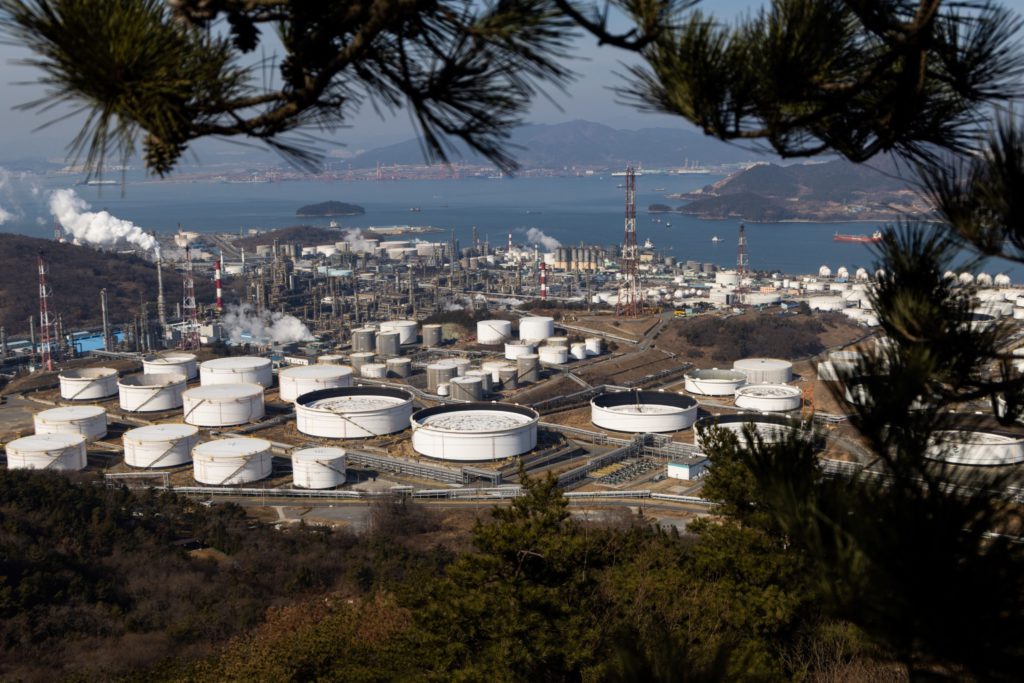(Bloomberg) — Oil dropped to trade near $91 a barrel, pausing a rally that’s propelled crude to its highest since 2014.
Futures in New York fell as much as 1.7% on Monday after rallying for seven straight weeks and gaining almost 30%. Diplomats are set to return to Vienna Tuesday to resume Iran nuclear negotiations, which are viewed as a path to restore the nation’s sanctioned oil to global markets. On Friday, the U.S. signed several waivers related to Iran’s civilian nuclear activities to ease diplomatic efforts.
The potential for eventual Iranian barrels, with crude being overbought from last week’s rally, is prompting the market to take a “pause to refresh,” said Rob Haworth, senior investment strategist at U.S. Bank Wealth Management. Crude futures “had a really good run at a time when the broader economy is not performing that way.”
Meanwhile, the second-largest U.S. refinery was unexpectedly shut down along with other plants on the Gulf Coast, sending spot gasoline prices in Houston to a two-month high. The closures could have an outsized impact on a market already squeezed for supplies. Heating oil margins climbed to their strongest since April 2020.
Though crude has begun the week on the back foot, the oil market’s structure has been indicating one of the strongest supply-demand balances in years. That has come as the average price of gasoline in the U.S. rose to the highest level in more than seven years and calls for $100 a barrel by some of Wall Street’s biggest names grow louder.
See also: Gasoline Prices Aren’t Dropping Anytime Soon: Julian Lee
“I would expect prices to remain around where they are, but there is definitely the risk to the upside,” said Fiona Boal, head of commodities and real assets at S&P Dow Jones Indices. “Demand has been incredibly tight. I have been amazed — particularly in the U.S. — with the distillate demand.”
Over the weekend, Saudi Arabia raised oil prices for its customers in Asia, the U.S. and Europe. The hike of 60 cents to its key Arab Light grade to Asia was largely in line with trader expectations.
OPEC+ last week agreed to boost output by 400,000 barrels a day in March, but the group is struggling to fulfill its supply pledges. One of Libya’s biggest oil companies was recently forced to cut output due to a lack of storage capacity caused by the inability to perform maintenance on tanks.











